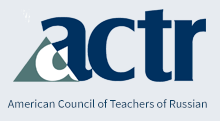Russian Language Journal
Keywords
Russia, language culture, writing, contemporary
Abstract
It was the Russian linguist, Grigorii Vinokur, who first introduced the term “kul’tura iazyka” or “language culture” to Russian in his writings on the changes taking place in the Russian language in the aftermath of the Bolshevik Revolution (Kul’tura iazyka [Moscow 1929]). Loosely defined as language production at all ranges of the discursive spectrum, the term provided Vinokur with a useful heuristic for writing about language in flux in a manner that took into account not just the high-end linguistic production of belles-lettres, but also the everyday language use (and abuse) of more mundane, but equally influential sources – including newspapers and other media, bureaucracies, classrooms, and everyday speakers and speech communities. Together, Vinokur argued, such a collective portrait of language production served as a far more accurate means of assessing the state and health of the language and, indeed, of the society in which it was used. This more integrated approach to language has become relatively standard through the decades since Vinokur, particularly under the influence of scholars such as Bakhtin, Foucault, and Bourdieu, whose work demonstrates not only the multiplicity of spheres responsible for language production (and codification), but also the fundamental role language plays in both reflecting and giving legitimacy to more general discourses of power and authority.
Recommended Citation
(2008). Introduction to Volume 58. Russian Language Journal, 58(1). https://doi.org/10.70163/0036-0252.1203


